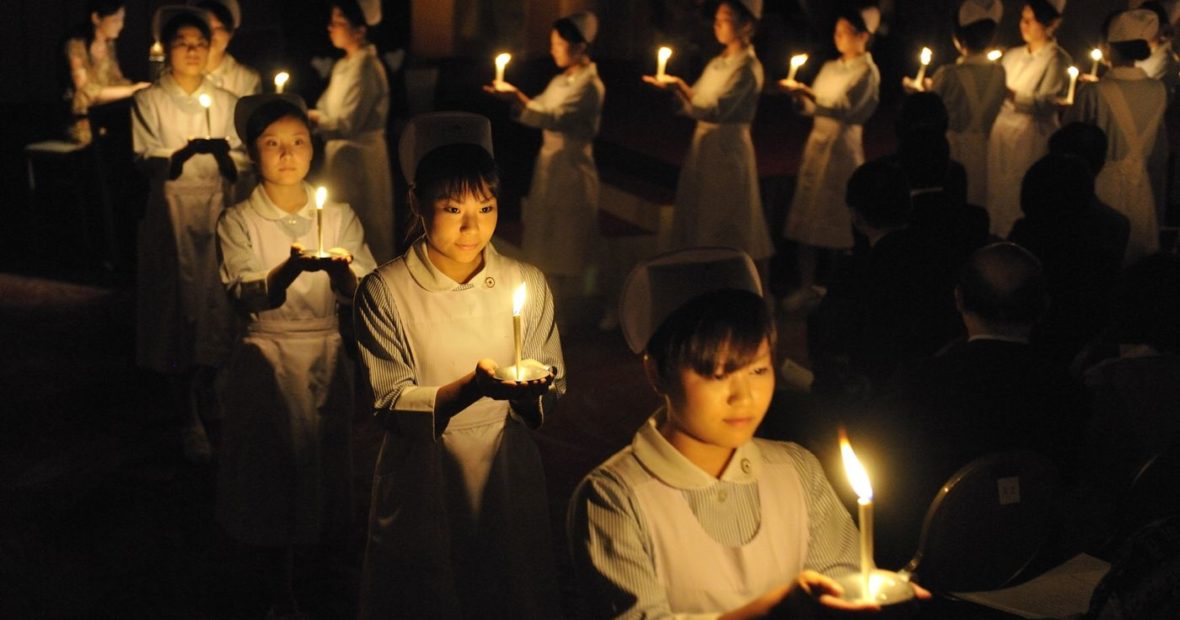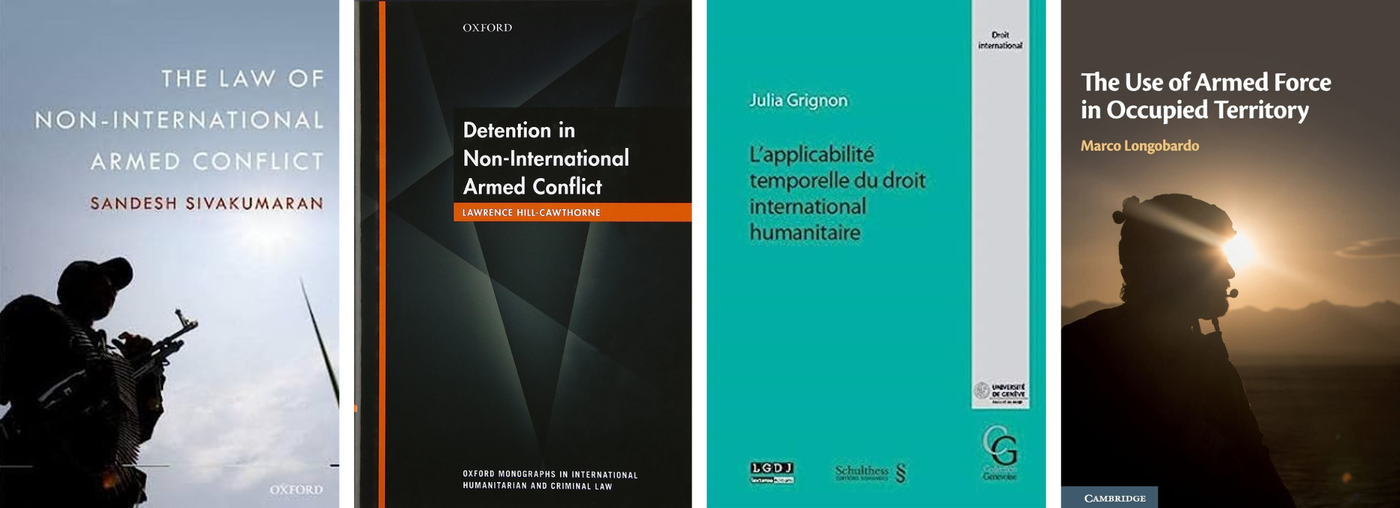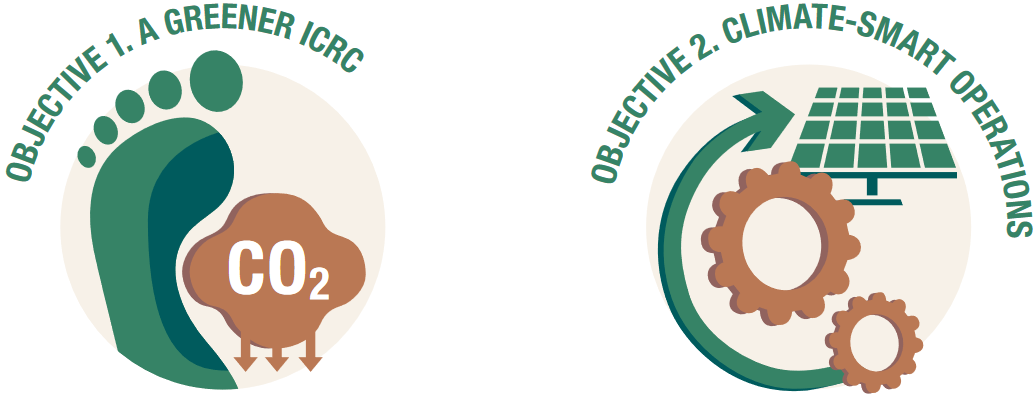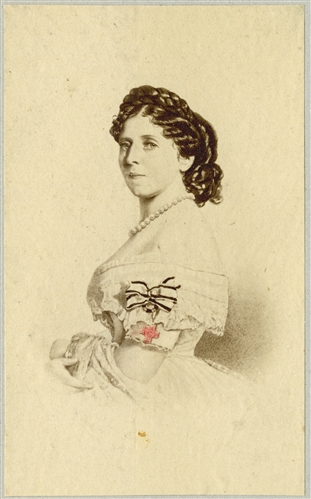In the years following the creation of the International Committee of the Red Cross (ICRC), funds were set up to support or reward initiatives in favour of humanitarian action. Some have disappeared, others have gone through the twentieth century and continue to support projects in line with the principles of the Red Cross and Red Crescent. Prizes and medals are also regularly awarded, whether in the field of nursing, international humanitarian law (IHL) or more generally to reward action in the service of the objectives of the International Red Cross and Red Crescent Movement (the Movement) as a whole. The funds associated with these prizes or medals are used to finance these awards.
This research guide facilitates access to the resources held by the ICRC Library on the funds and medals of the ICRC and the Movement. Additional information, such as the financial statements of special funds managed by the ICRC or calls for nominations and announcements of awards, is published by the ICRC in the following documents:
Annual reports News releases Circulars
Empress Shôken Fund
The Empress Shôken Fund was established in 1912, at the 9th International Conference of the Red Cross (International Conference), with a donation of 100,000 yen from H.M. Empress Shôken of Japan to strengthen the activities of National Red Cross and Red Crescent Societies (National Societies) in times of peace.

Malawi Red Cross: ambulance purchased thanks to the 64th fund distribution (ACICR, V-P-MW-E-00001,2,3,4)
The Fund’s income is distributed for the first time after the First World War, in 1921. The year 2021 thus marks the 100th distribution of income from the Fund. In total, more than 14 million Swiss francs have been allocated in grants to 170 National Societies between these two dates.
The Fund is administered and its revenues distributed by the Joint Commission of the Empress Shôken Fund, composed equally of three members appointed by the International Committee of the Red Cross and three by the International Federation of Red Cross and Red Crescent Societies (the Federation). Notification of the distribution takes place on 11 April of each year, the anniversary of the death of H.M. Empress Shôken.
Florence Nightingale Medal
Established at the 9th International Conference in 1912, following a proposal by the Hungarian Red Cross five years earlier, the Florence Nightingale Medal honours the work of the famous British nurse. It is the highest distinction awarded to nurses who have distinguished themselves in war or peace. Initially reserved for women only, the medal has also been awarded to men since a change in the rules of attribution in 1991.
Florence Nightingale (1820 – 1910)
Portrait of a Pioneer of Modern Nursing in Writings
The income from the Florence Nightingale Medal Fund is used to award the medal. New awards are announced by the ICRC every two years on 12 May, the anniversary of Florence Nightingale’s birth. The medal was awarded for the first time after the First World War, on 12 May 1920. This marked the 100th anniversary of Florence Nightingale’s birth. On 12 May 2020, on the occasion of the 200th anniversary, a collective honorary medal was exceptionally awarded to nurses and midwives in captivity.
Foundation for the ICRC
The Foundation for the ICRC was established in 1931 to help the ICRC fulfil its humanitarian mission, in peacetime as in wartime. The inter-war period was a time of great uncertainty, and the Foundation was seen as a way of securing the future of impartial, neutral and independent humanitarian action.
Today, the Foundation for the ICRC helps the institution to meet the new challenges it faces in the context of its action, such as the changing nature of warfare, new technologies in war, and the worsening climate crisis.
Commission for the financing of the ICRC
The independent commission was founded in 1948 on the initiative of five National Societies (of Belgium, Canada, France, Norway and the United States) and formally established by resolution VII of the 17th International Conference of 1948. The aim was to ensure that the ICRC would have the necessary resources to carry out its humanitarian mission.
In February 1999, the Standing Commission decided that the Commission for the Financing of the ICRC would no longer feature on the agenda of the Council of Delegates, unless specifically requested or in the event of proposals that would substantially alter its mandate.
Henry Dunant Medal
Established at the 20th International Conference of 1965, the Henry Dunant Medal is the highest distinction that the Movement can bestow on an individual. It is intended to recognize and reward outstanding services and acts of great devotion, mainly of international significance, to the cause of the Red Cross and Red Crescent by any of its individual members.
The medals are awarded every two years by the Standing Commission of the Red Cross and Red Crescent and presented in plenary session of the Council of Delegates.
List of Henry Dunant Medal Winners since 1969
Clare Benedict Fund
The income of the Clare Benedict Fund, established in 1968, is used for assistance activities for victims of armed conflict, in accordance with Ms Benedict’s wishes.
Until 31 December 2021, the Clare Benedict Fund and the Paul Reuter Fund were hosted by the ICRC. On 1 January 2022, the two funds were transferred to the Foundation for the ICRC, which acts as an umbrella for these two funds.
Maurice de Madre French Fund
The Maurice de Madre French Fund was established in 1974, under the will made by Comte Maurice de Madre, who died on 25 December 1970. Its purpose is to assist first-aid workers, delegates and nurses of international or national Red Cross or Red Crescent institutions who have been injured, are in difficult circumstances or in poor health, as well as their family members in the event of their death.
Omar El Mukhtar Fund
The income of the Omar El Mukhtar Fund, established in 1980, is made up of one or more donations from the authorities of Libya and is used to finance the ICRC’s general assistance activities.
Paul Reuter Fund and Prize
The Paul Reuter Fund was created in 1983 thanks to a donation made to the ICRC by Professor Paul Reuter. Its purpose is twofold: its income is used to encourage the publication of works on international humanitarian law or other initiatives in that field, and to finance the Paul Reuter Prize. The prize is awarded for a major work in the field of international humanitarian law.
Recipients of the Paul Reuter Prize
Until 31 December 2021, the Clare Benedict Fund and the Paul Reuter Fund were hosted by the ICRC. On 1 January 2022, the two funds were transferred to the Foundation for the ICRC, which acts as an umbrella for these two funds.
Jean Pictet Fund
The Jean Pictet Fund was created in 1985 by an anonymous donation to the Henry Dunant Institute. Its purpose is to encourage and promote the knowledge and dissemination of international humanitarian law, in particular by co-financing the annual Jean-Pictet International Humanitarian Law Competition, which aims to “take the law out of the books”.
Red Cross and Red Crescent Prize for Peace and Humanity
Instituted by the Council of Delegates in 1987, the Red Cross and Red Crescent Prize for Peace and Humanity is intended to honour either National Societies or individuals in the Movement by recognizing their active contribution to a more peaceful world through humanitarian endeavour and promotion of the Movement’s ideals.
The prizes are awarded every four years by the Standing Commission of the Red Cross and Red Crescent and presented in plenary session of the Council of Delegates.
National Society Investment Alliance
The National Society Investment Alliance is a pooled funding mechanism, run jointly by the Federation and the ICRC according to the Memorandum of Understanding signed between the two institutions in October 2017. It provides flexible, multi-year funding to support the long-term development of National Societies.
Climate and Environment Transition Fund
The Climate and Environment Transition Fund, launched in early 2022, is structured as a multi-year vehicle aimed at supporting ICRC’s sustainability objectives and climate action.
Movement Family Links Medal
Created by the Council of Delegates in 2022, the Movement Family Links Medal pays tribute to and recognizes individuals or groups of individuals who have provided outstanding services in the field of restoring family links (RFL), whether in situations of armed conflict, other situations of violence, disasters or other situations requiring a humanitarian response, including in the context of migration. The medal is also intended to help promote, increase the visibility of and garner recognition for RFL services within the Movement and beyond.
The medals are awarded every two years by the RFL Leadership Platform on the occasion of the Council of Delegates. The RFL Leadership Platform was established on the basis of the RFL resolution adopted by the Council of Delegates in 2017 and is composed of the ICRC, the IFRC, NS leaders and external actors, such as UNHCR.
Past funds and medals
Augusta Fund (1890-2017)
The Augusta Fund was established in 1890 to commemorate the services of the late German Empress Augusta to the Red Cross. The Fund was declared inalienable, and its use was specified during the 7th International Conference of 1902: it would be capitalized until it reached 100,000 Swiss francs; once this capital reached, interests would be used to support projects of National Societies. The condition was met the following year, in 1903. The distribution of that year’s income was communicated on 7 January 1904, the anniversary of the death of H.M. Empress Augusta.
In 1969, the 21st International Conference decided that the income of the Augusta Fund would be allocated to the Florence Nightingale Medal Fund. In 2015, taking note of the lack of sustainability of the Augusta Fund, the 32nd International Conference validated its dissolution and the transfer of its capital to the Florence Nightingale Medal Fund. The Fund was liquidated in 2017.
Empress Maria Feodorovna Fund (1902-1918)
The Empress Maria Feodorovna Fund was established in 1902, at the 7th International Conference, with a donation of 100,000 rubles from H.M. Empress Maria Feodorovna of Russia to reward the best inventions to alleviate the suffering of wounded and sick soldiers.
Income from the Fund was used to award prizes at the 8th and 9th International Conferences in 1907 and 1912 respectively. The Fund, administered by the Russian Red Cross, was nationalized by a decree of the Council of People’s Commissars of the Russian Soviet Federative Socialist Republic, dated 3 May 1918.
ICRC Special Fund for the Disabled (1983-2016), which became ICRC MoveAbility Foundation (2017-2019)
In 1983, the ICRC created the Special Fund for the Disabled, in accordance with Resolution 27 of the 24th International Conference in 1981. The Fund was intended to finance long-term projects for persons suffering from physical impairments as a result of armed conflicts.
This Fund became independent in 2001 and was renamed MoveAbility Foundation in January 2017. Three years later, in January 2020, the foundation was liquidated, and its activities integrated into the ICRC’s Physical Rehabilitation Programme.








Comments